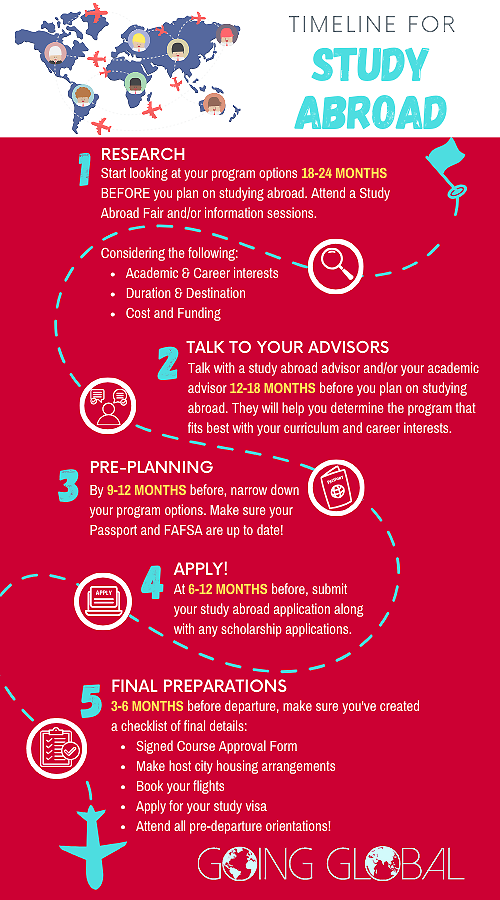Main Content
Planning to study abroad for a full semester requires self-motivation, organized flexibility, and a passion to explore. It also requires some realistic conversations about your academic progress and no less than one academic year of advanced planning. Some steps to consider for a successful study abroad experience:
- Plan early and discuss your options with your different advisors – this includes a study abroad advisor and an academic advisor.
- Think about how study abroad fits into your goals academically, career-wise, and personal growth.
- Think about what type of program is the best fit. This could be a full semester or academic year, a faculty-led summer program, or several other experiences.
- Talk to your family and review your financial expectations to help you determine program type and location.
- If you’re interested in a non-Rutgers study abroad program, please refer to the Non-Rutgers Program Approval Planning page.
Planning Resources
- The Rutgers Global Study Abroad (RGSA) Office offers 140+ study abroad program options.
- RGSA also has a robust Academic Planning page that includes a Course Equivalency Database and the Course Equivalency Form.
- SEBS Office of Global Engagement getINVOLVED page and the Rutgers Global Events page.
- The SEBS Office of Academic Programs for academic advising.
- GoOverseas Travel Blogs and Resources.
